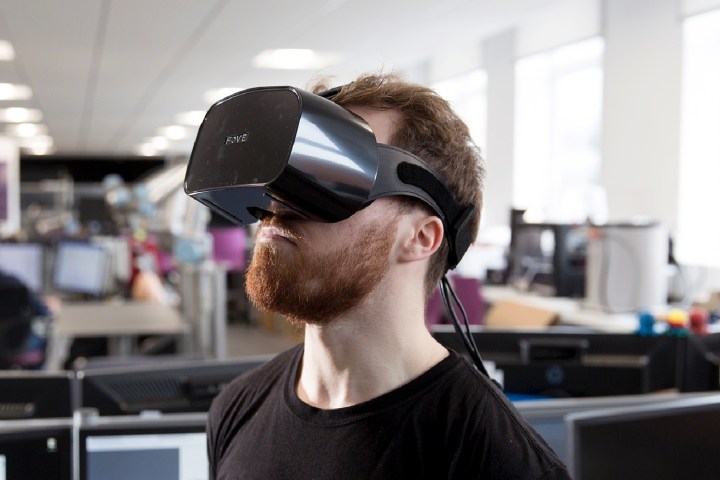
24-year-old Gareth Walkom first developed a stutter when he was six years old. Now as an medical product design student, he’s in a position to help others with similar afflictions. To that end, he’s developing VR software to help individuals work through social anxieties and speech disorders by confronting a variety of virtual scenarios.
“During a session of VRET, the individual is to wear the virtual reality headset, where they see an avatar,” Walkom told Digital Trends. “The individual is to talk to this avatar, and while doing so, their eye gaze behaviors are tracked through the special VR headset. If needed, a calming environment is available, which they can easily change into if their anxiety levels become too high. Virtual reality exposure therapy [as] opposed to exposure therapy in person, presents a realistic yet safe environment for someone to better prepare themselves for a real-life, anxiety-provoking situation.”
At present, the system is still very much under development, although the signs are promising. In tests using a previous virtual reality exposure therapy system Walkom developed, participants who took part showed signs of reduced anxiety and improved speech after repeated sessions. Now Walkom is building on that promise with his latest version, which also includes eye-tracking technology.
The software offers feedback about behavioral anxiety levels, and then shows how users are progressing — or even suggests additional ways for them to improve.
“I am hoping to take my research to a PhD this year, where I have plans which I believe can be groundbreaking to improve many disorders,” he said. “I am still searching for a source to fund this research.”
Given how potentially important work like this could prove, we hope that he finds it. This is exactly the kind of technology we love to hear about.


